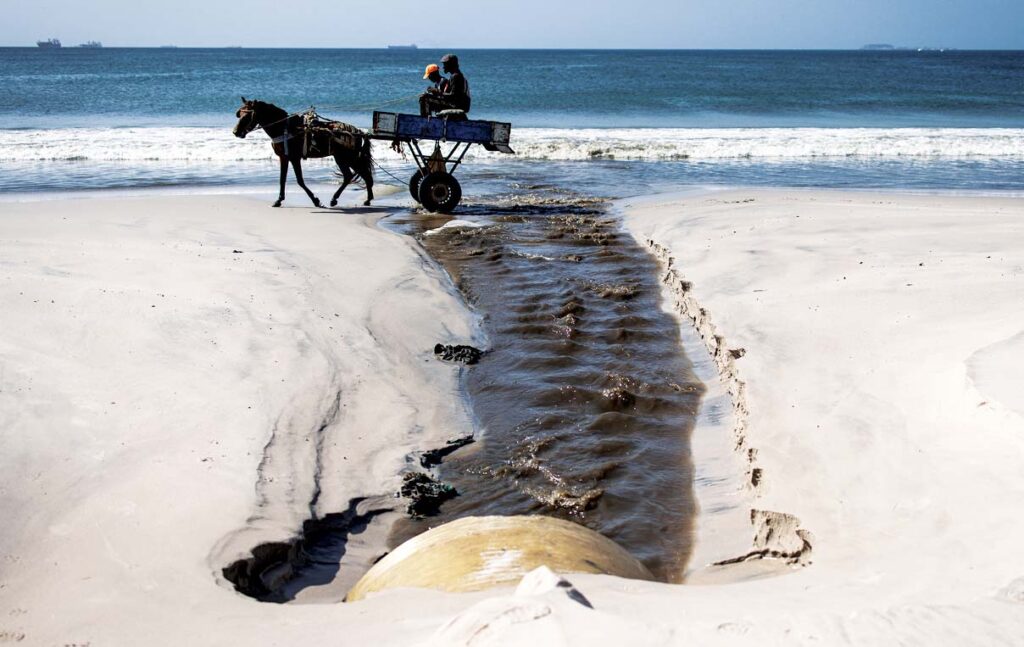The World Bank’s 2022 report on the blue economy in Africa points out the vital importance of this sector to the continent’s economic transformation, but decries insufficient governance and management failures, which are compounded by low institutional capacity. In particular, policies governing ocean and coastal resources are often fragmented, characterised by legal and regulatory gaps and overlapping institutional mandates.
While the oceans have long been a source of economic livelihood, this vast resource is threatened by population growth, urbanisation, overexploitation, pollution, acidification, marine plastic litter, underwater noise, declining biodiversity, climate change, and the expansion of global trade.
Africa has 38 coastal and island states and a more than 47,000 km coastline, which presents an enormous opportunity for the continent to develop the sectors associated with the blue economy. Sustainable management of the coastal marine environment and responsible growth of current and future blue economy sectors can potentially lift millions of people out of poverty.
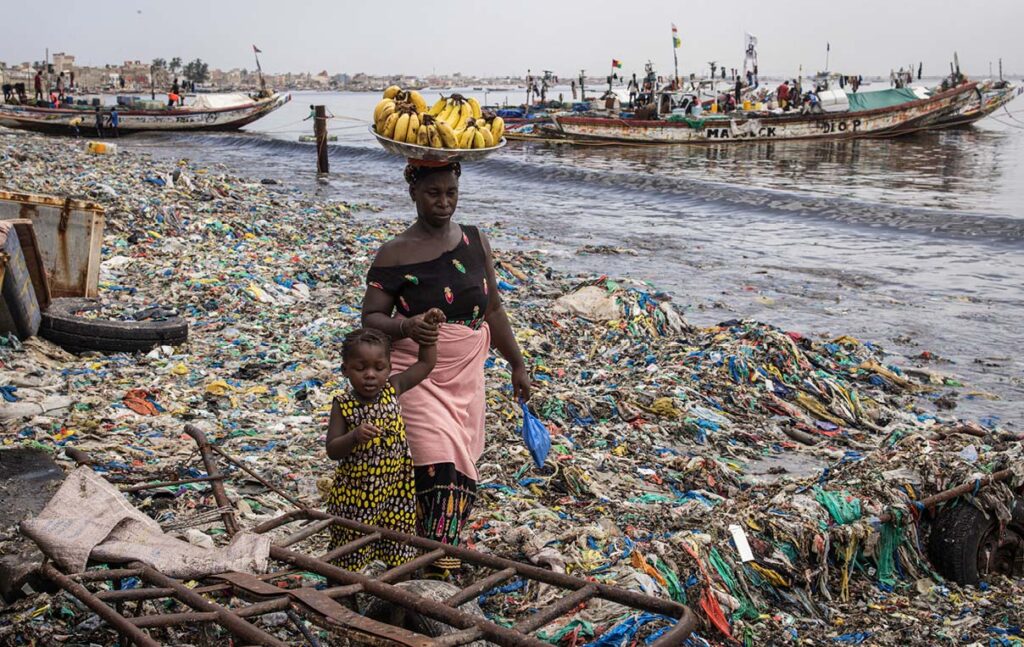
As a continent surrounded by some of the world’s most important marine biodiversity, strategic maritime trade routes, abundant aquatic resources, and blue carbon assets, it is critical that governments, regional bodies, and institutions guide blue economy development through impactful policies that meet global and continental targets.
The African Union (AU) estimates that the blue economy generates about $300 billion in economic activities for the continent, supporting nearly 50 million jobs. By 2030, Africa’s blue economy is projected to grow to $405 billion, including $100 billion generated by coastal tourism, and will generate 57 million jobs. These and other crucial benefits – most notably food security, livelihoods, and biodiversity – depend entirely on sound management and effective policies. Although the sector provides food security and nutrition for over 200 million Africans and contributes about 2% to GDP, it remains largely untapped.
But first, African countries must establish coherent policies, strategies, and institutional mechanisms. Donors like the World Bank can support blue economy policy and institutional development, using, for example, sector entry points that are achieving results, such as marine conservation and climate adaptation projects, to engage with governments.
In its Africa Blue Economy Strategy, published in October 2019, the AU said it “recognises the inherent challenges faced by member states in realising the full benefits from the various sectors of the blue economy.”
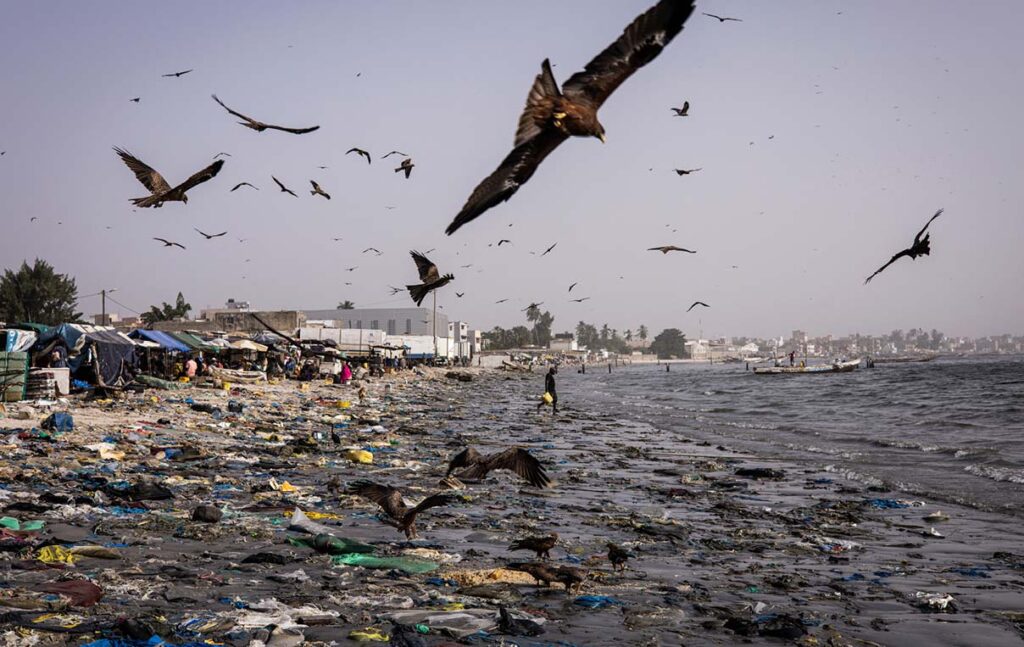
These challenges included illegal fishing in Exclusive Economic Zones (EEZ), piracy, and illegal drug trafficking, which “pose a real threat not only to the safety of vessels and their crew but also to the economies of affected countries, particularly in the Gulf of Guinea and South West Indian Ocean”. Pollution – dumping toxic wastes as well as the indiscriminate discarding of single-use plastics – also undermined efforts to grow Africa’s blue economy, the AU said, noting that “it is now common knowledge that climate change and climate variability are already impacting Africa’s aquatic systems and food production overall”.
In her introduction to the strategy document, the AU’s commissioner for Rural Development and Agriculture, Ambassador Yosefa Sacko, noted that significant institutional and governance issues underpinned these challenges, “constraining the ability of AU member states to effectively formulate and implement policies relating to the growth of the relatively new blue economy concept”.
In addition to its 2019 strategy, the AU has several pan-African instruments that support blue economy growth: the Policy Framework and Reform Strategy for Fisheries and Aquaculture in Africa (PFRS), the 2050 African Integrated Maritime Strategy (AIMS); the 2016 Lomé Charter and Agenda 2063. Despite the challenges, progress is being made to develop an inclusive and sustainable blue economy that significantly contributes to continental transformation and growth.
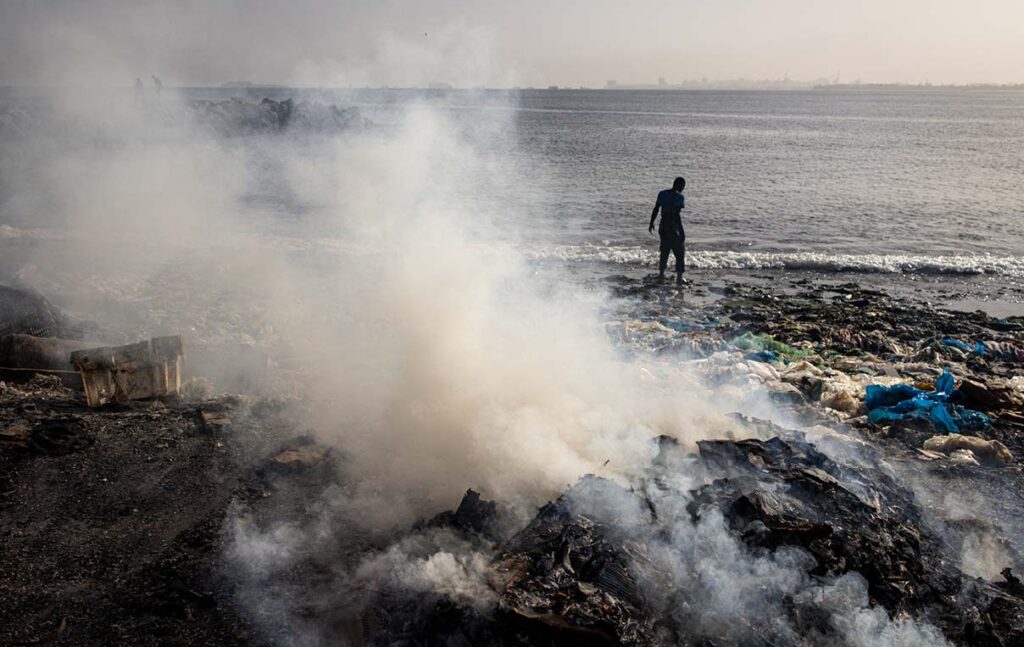
In the Seychelles, for example, the fishing industry contributes an estimated 20% to its economy and employs 17% of its population, making it the second most important pillar of the economy. In 2018, the Seychelles issued the first sovereign blue bond in history to finance marine resources, ensure resource sustainability, and advance the ocean economy. The bond demonstrates the potential for countries to harness capital markets to finance the sustainable and inclusive use and protection of marine resources.
Consequently, Seychelles has run educational awareness outreach programmes that educate people on the need to protect oceans and has introduced legislation to protect some marine areas from the impact of humanity. At the same time, the blue bonds have funded small startups operating in the blue economy and the environment sector, enabling them to launch businesses and create more awareness around the need to protect the environment.
In Tanzania, the government is trying to improve governance and promote good fisheries management, in particular by implementing reforms and introducing legislative measures to address the challenges facing its coasts, inland waters, and fisheries. In addressing the challenges facing small-scale fisheries, the country has improved infrastructure and technology for the sector, as well as mechanisms for capital and market access.
In September this year (2024), speaking at the eighth meeting of ministers responsible for oceans, inland waters, and fisheries of the African, Caribbean, and Pacific Group of States, Tanzania’s Minister for Livestock and Fisheries, Abdallah Ulega, said that his country understood the importance of the blue economy and was making efforts to accelerate action to transform the sector.
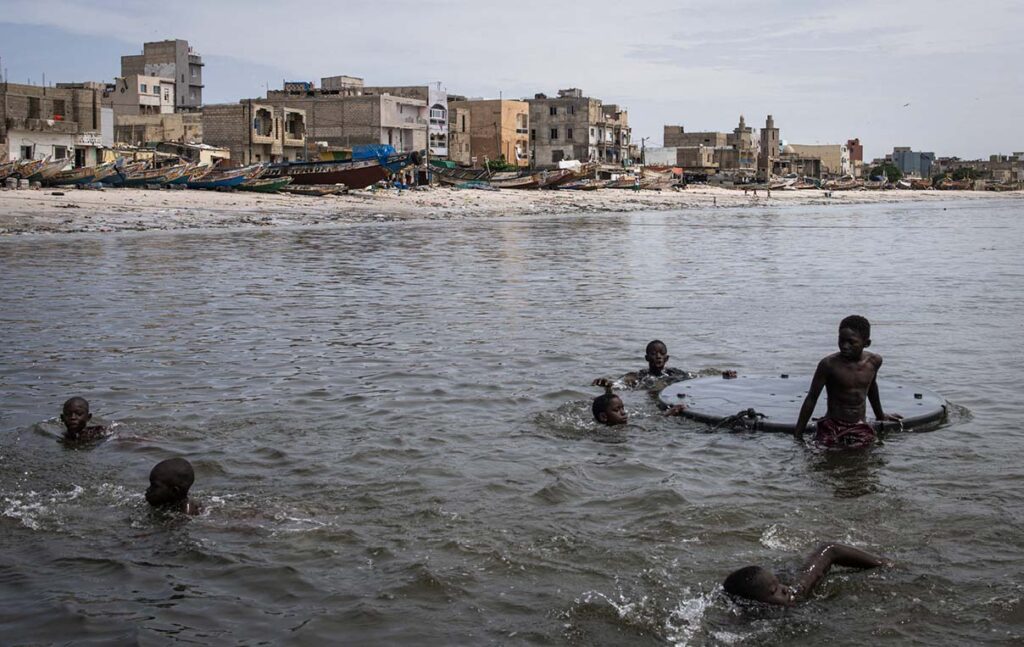
“Tanzania remains fully committed to the sustainable management of its oceans and inland waters,” he said. “Through initiatives such as the Fisheries Sector Master Plan, the Blue Economy Policy, and our ongoing efforts to combat illegal and unsustainable fishing, we are working to ensure that our marine ecosystems remain healthy and productive for future generations.”
Last year, Kenya adopted its own comprehensive national blue economy strategy. Speaking at the validation forum, then Cabinet Secretary of the Ministry of Mining, Blue Economy and Maritime Affairs, Salim Mvurya, said the new strategy was “comprehensive, all-inclusive, and incorporated best standards and practices in blue growth development.”
“The strategy,” he said, “is tailored to the needs and aspirations of this country, and the strategies for harnessing the opportunities in the diverse blue economy components are well articulated. It is our sincere hope that Kenya’s national strategy will lay a solid foundation for an innovative, prosperous, inclusive, resilient, and sustainable blue economy.”
At the same time, the Economic Commission for Africa is helping countries to tackle management and policy failures that hinder their progress in realising the full potential of the blue economy.
“The blue economy offers a unique opportunity for Africa to accelerate structural transformation and economic diversification,” the Economic Commission for Africa’s acting Executive Secretary, António Pedro, said at the 2023 Africa Climate Summit held in Nairobi.
Focused and decisive governance action is required for the sustainable development of blue economies in Africa. By improving management and adopting effective policies, countries will be better positioned to take full advantage of blue economy opportunities.

Raphael Obonyo is a public policy analyst. He’s served as a consultant with the UN Department of Economic and Social Affairs (UNDESA). An alumnus of Duke University, he has authored and co-authored numerous books, including Conversations about the Youth in Kenya (2015). He is a TEDx fellow and has won various awards.

